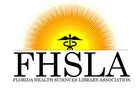|
Dear Readers, Each year FHSLA awards Honorary Membership to members who have made significant and consistent contributions to FHSLA. This award is given to FHSLA members who are retiring or have retired during the year since the last annual meeting. Candidates must have been members of FHSLA for three years, and hold current membership in FHSLA at the time of the award or at the time of retirement. The purpose of honorary membership is to help those members who have served to continue to contribute their experience and wisdom to FHSLA. This year our honorary member is Nancy Schaefer. Nancy has served as president of FHSLA and was a member of the nominating committee. Nancy spent several years of her library career at the University of Florida as a liaison to the College of Public Health. Her passion for public health did not stop at the library doors and she frequently attended the American Public Health Association's annual meeting with support from the Grace and Harold Sewell Memorial Fund. We were lucky enough to catch up with Nancy and learn a little more about her career and future plans.  Nancy Schaefer MLIS, AHIP Nancy Schaefer MLIS, AHIP Hi Nancy, How did you get started in Health Sciences Librarianship? The many settings (hospital, corporate, govt/nonprofit. academia) seemed to offer the greatest range of employment options for librarians. My Health Sciences Reference course assignments promoted learning both the sources and the culture. My MLIS internship mentor-- Terry Jankowski--though known for her search expertise, guided rather than judged my early searches. This allowed me to focus on experimenting, exploring, and learning rather than worrying about criticism. What was one thing that you saw change in a positive way during your time as a health sciences librarian? Complex Evidence Syntheses have brought librarians back into the education and research mission of academic health science centers and possibly into hospital settings as well--teaching the next generation of researchers and practitioners to wisely consume publications that claim to be evidence syntheses--even if they never work on or produce one themselves--and therefore, hopefully, making sure sloppy research isn't carried forward to bad clinical decisions. What did you love about being a health sciences librarian? I adored the intellectual stimulation of the various topics students and faculty wanted to research, gathering possible search terms, learning requestor reasons for rejecting terms, and exploring functions and contents of the various databases. Four years was my max "length of stay" in any previous job, so 22 1/4 years in this job attests to the "lifelong learning" possible for health science librarians. What advice would you give to an early career health sciences librarian? You can learn from everyone that you work with no matter their position or status. Keep your eyes open for strategies and techniques that help you get tasks done. Read voraciously and attend workshops and classes. Then, be confident that you almost certainly know more about sources, search techniques and functions, and possibly about publication processes and secondary source research than your health science clients do and stand your ground calmly but respectfully (since they almost certainly know more about the content side like physiology or electrocardiology than you do.) What are your plans for retirement? Sew, travel, exercise, read books, and spend time with friends and family. Thank you so much for taking the time to talk to us. FHSLA thanks you for your contributions to our organization and the field of health sciences librarianship. We wish you a wonderful retirement! Comments are closed.
|
Blog EditorArchives
March 2025
Categories
All
|

 RSS Feed
RSS Feed